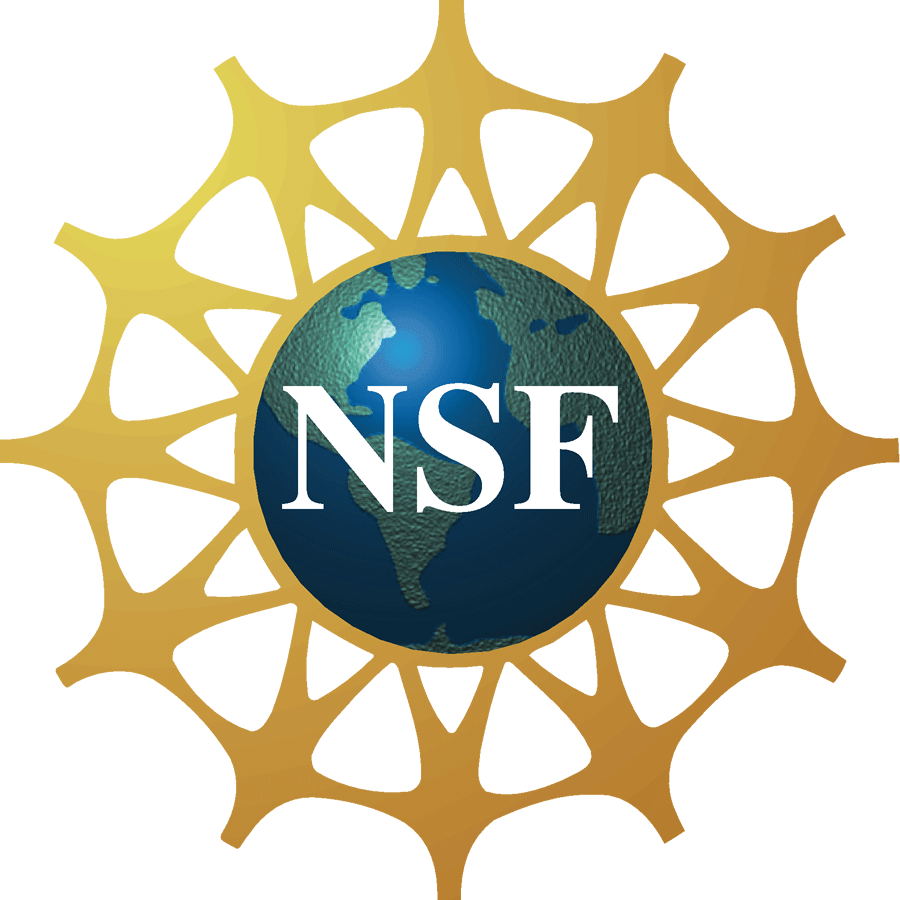Seminars and Panels
|
Psychology of Science and Technology
Professor Michael E. Gorman
|
Nov 17 2014
|
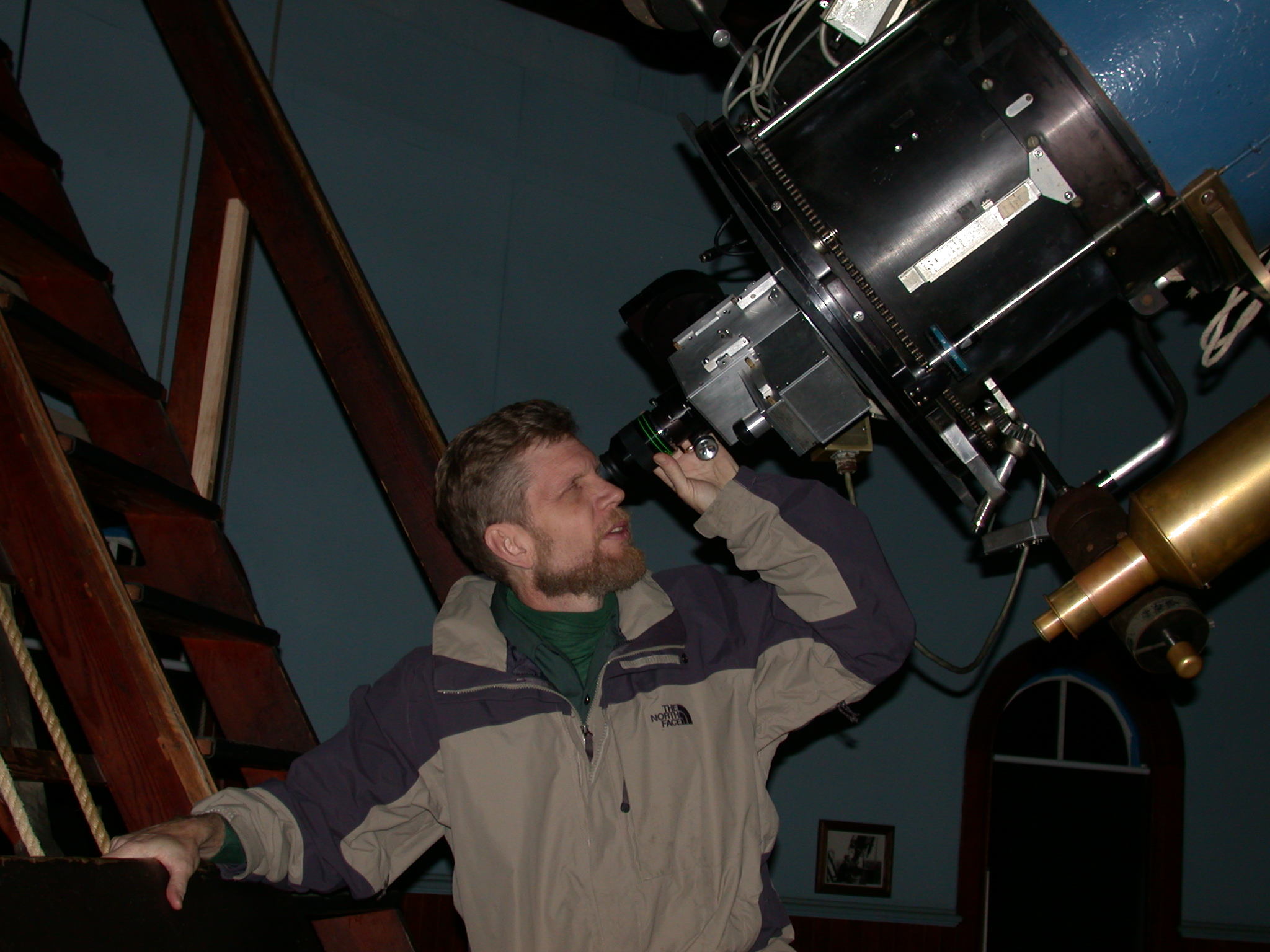
Psychologists should have a lot to say about the thinking and social processes that lead to discoveries and new technologies. But very little psychological work has been done on this topic. In this talk, I will cover the major methods that have been used by psychologists and highlight a few of the findings.
Another paradox is that very little psychological work is integrated with the wide variety of approaches to Science and Technology Studies (STS). Because psychologists were not interested in studying science and technology, I gravitated to STS. I will also discuss my efforts to convince at least some STS scholars to take psychological findings seriously, and also how psychological work could be combined with sociology and anthropology to create a better understanding of discovery, invention and the impact of science and technology on society.
I will end with my attempts to revive International Society for Psychology of Science and Technology.
About Professor Michael E. Gorman
Michael E. Gorman earned a PhD (1981) in Social Psychology at the University of New Hampshire. He is currently Director of Science, Technology & Society at the University of Virginia, President of the International Society for the Psychology of Science and Technology (ISPST), and served as an Science and Technology Studies (STS) Program Director at NSF. His research interests include social psychology of science, (Simulating Science, Indiana University Press, 1992); NSF supported work on cognition in the invention of the telephone, and engineering ethics (Gorman, Mehalik & Werhane, Ethical and Environmental Challenges to Engineering, Prentice-Hall, 2000). His current research is in the kind of interdisciplinary trading zones that will be needed for scientists, engineers and other stakeholders to collaborate on the development of new technologies (Trading Zones and Interactional Expertise: Creating New Kinds of Collaboration, MIT Press, 2010).
Click here to view the webcast. |
|
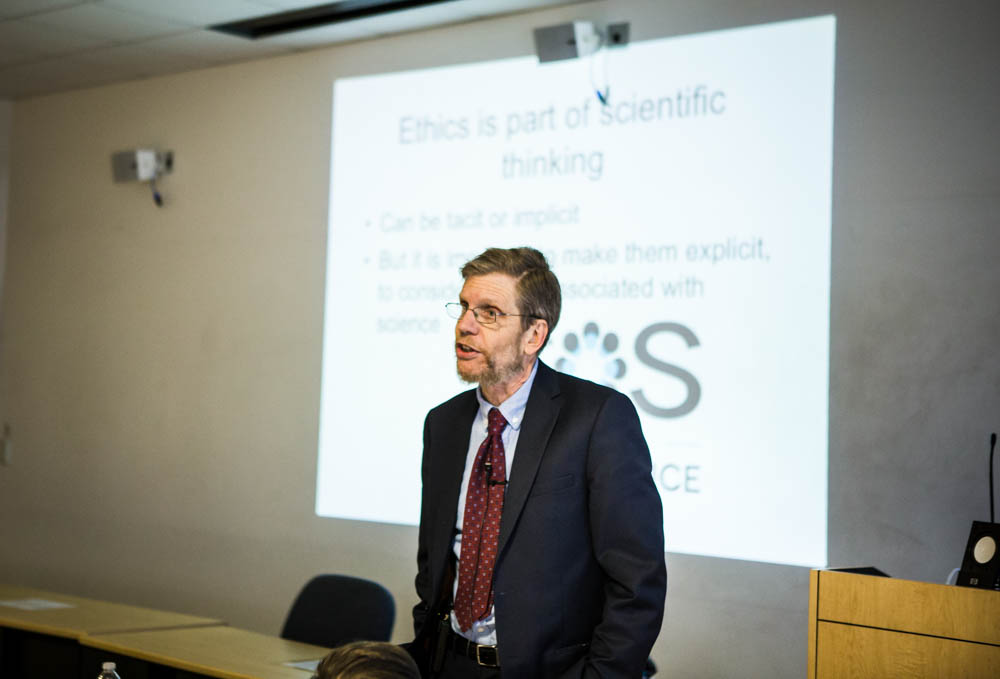
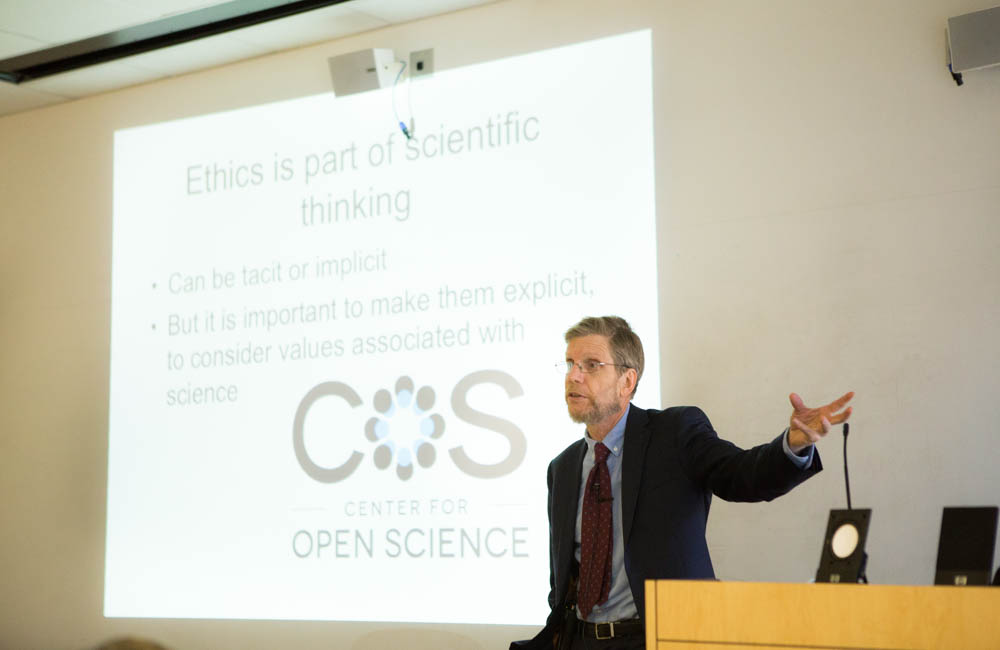
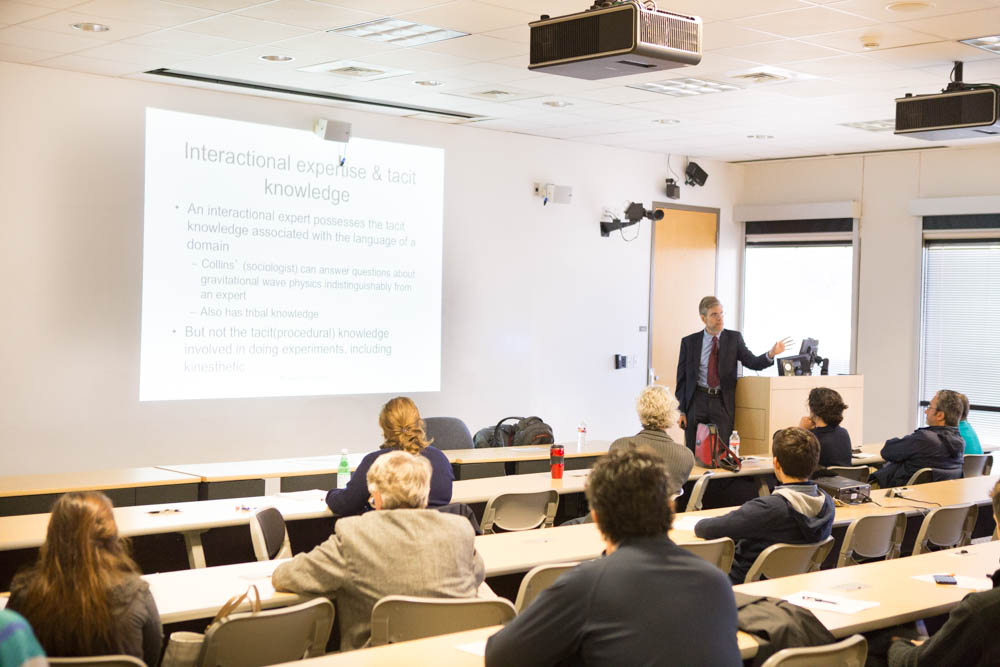
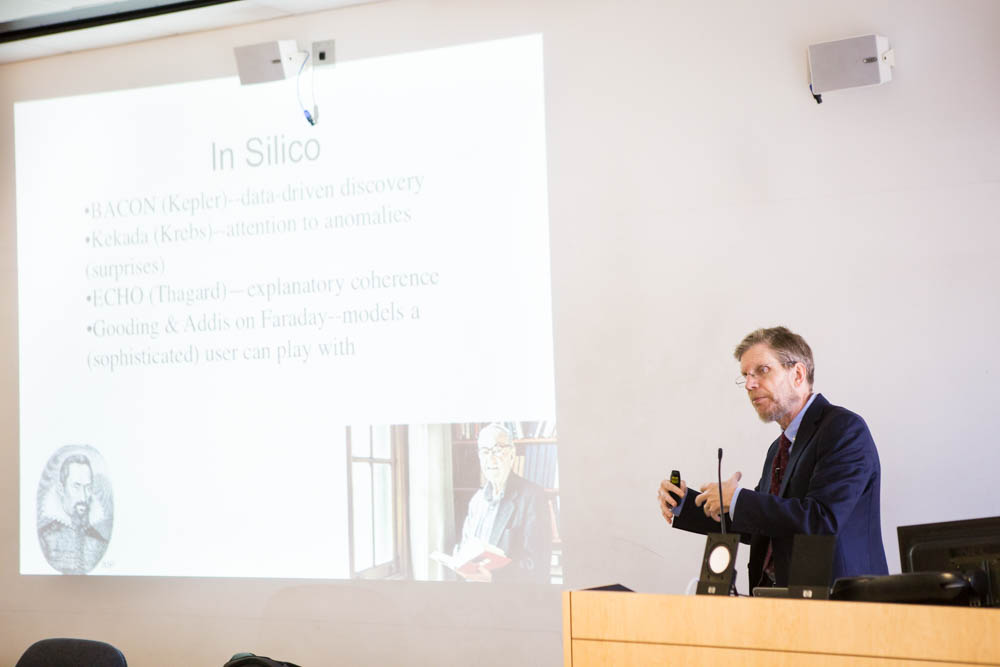
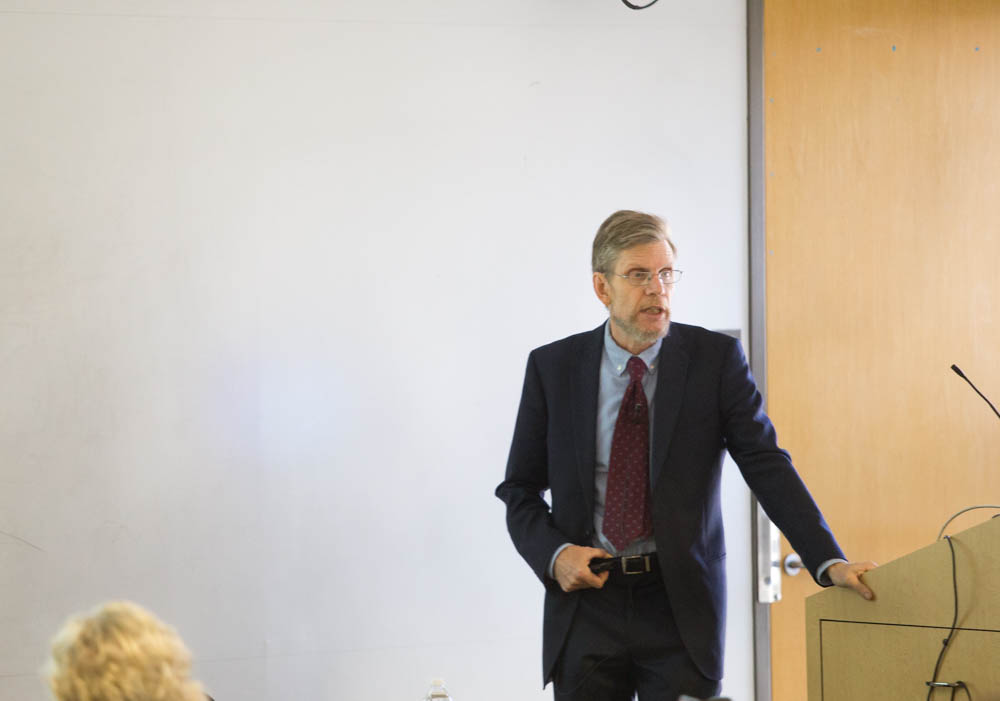
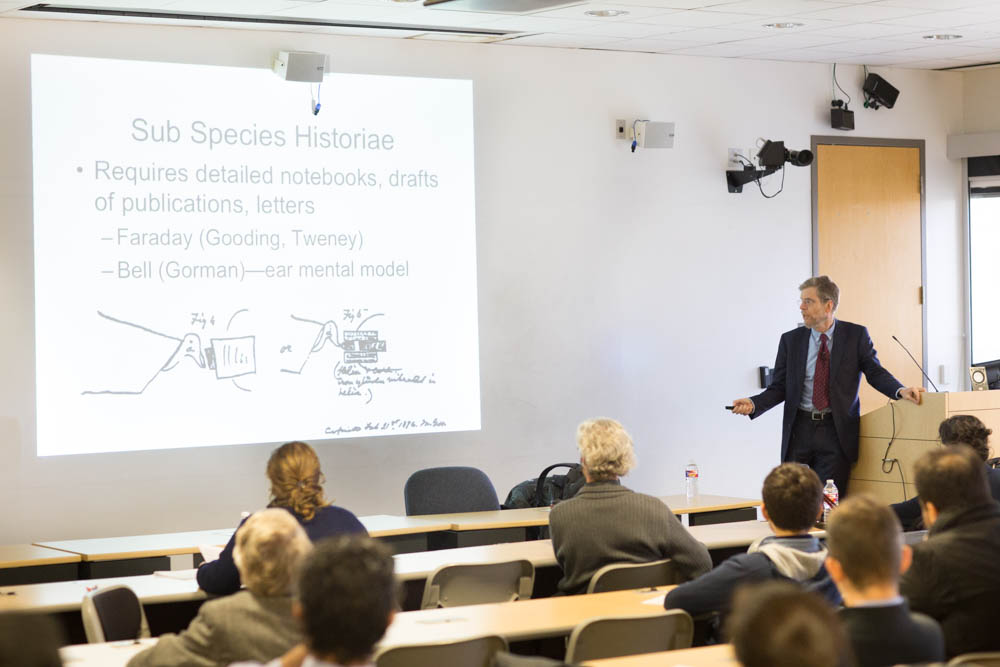
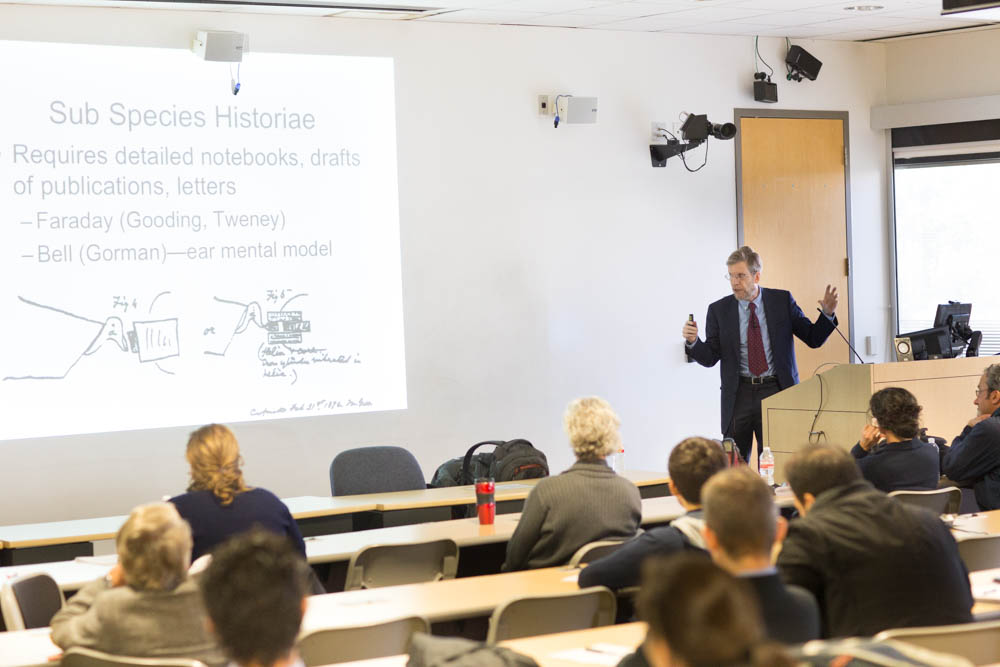
Audience Feedback |
n = 61 |
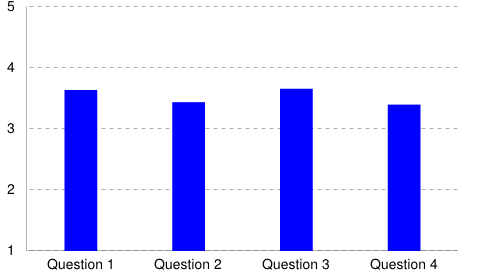
Question 1 - How interesting was the topic to you?
Question 2 - Did you learn anything useful?
Question 3 - How would you rate the quality of the presentation?
Question 4 - How would you rate the quality of the audience's interaction with the speaker?
Selective Comments
"Good and interesting professionals can give the youth more knowledge"
"The range of speakers/topics is good, since different lectures appeal to many groups of people"
"I will defenitely go to another one"
- 2017 - 2018
- 2016 - 2017
- Behavioral Concepts and the Sciences of Human Behavior
H. Longino Apr 21, 2017 - Insane Asylums and Genetics: How Human Heredity Became a Data Science
T. Porter Feb 17, 2017 - The Nature of Pride: The Emotional Origins of Social Rank
J. Tracy Jan 23, 2017
- Behavioral Concepts and the Sciences of Human Behavior
- 2015 - 2016
-
Public Ethics, Politics and Sociobiology
M. P. Sheldon Mar 11, 2016 -
Classifying People by Color: How Racial Categories Change Over Time
A. A. Martinez Feb 29, 2016 -
The Origin of Social Impulse: E.O. Wilson's Recent and Controversial Rejection of Kin Selection in Historical Context
A. Gibson Dec 4, 2015
-
Public Ethics, Politics and Sociobiology
- 2014 - 2015
-
Special Event: Lone Star History of Science Meeting Writing the Origin with Burned Fingers: Darwin's Penance for the "Sin of Speculation"A. Sponsel Apr 3, 2015 - Welfare, Work, and Witness: Why Clinical Research Can Survive the Death of a Healthy Human Subject
L. Stark Apr 3, 2015 - The Distinctive Significance of Systemic Risk
A. James Mar 6, 2015 - The Devil's Heritage: Masuo Kodani, the "Nisei Problem," and Social Stratification at the Atomic Bomb Casualty Commission in Japan (1946-1954)
V.B. Smocovitis Jan 28, 2015 - Atypical Combinations and Scientific Impact
B. Uzzi Dec 8, 2014 - Psychology of Science and Technology
M. Gorman Nov 17, 2014 - How Economics Shapes Science
P. Stephan Sep 10, 2014
-
- 2013 - 2014
- The Decision to Put David Vetter in the Bubble
J. H. Jones Apr 16, 2014 - Ethical Paradoxes of
Control: Science, Engineering, and the Expansion of Moral ResponsibilityR. Hollander Mar 3, 2014 - 'Broken Symmetry': Humanism, Militarism, and the Dilemmas of Scientific Identity in Nuclear Age America.
J. Wang Feb 17, 2014 - Using Creative Non-Fiction in Teaching Research Ethics
C.M. Klugman Dec 2, 2013 - Does Neuroscience Undermine Responsibility?
W. Sinnott-Armstrong Nov 15, 2013 - Arming Mother Nature: The Birth of Catastrophic Environmentalism
J. Hamblin Oct 18, 2013
- The Decision to Put David Vetter in the Bubble
- 2012 - 2013
- Lead Wars: the Politics of Science and the Fate of America's Children
D. Rosner Mar 25, 2013 - Identifying potential pitfalls in the quantitative appraisal system for scientific careers
A.M. Petersen Dec 3, 2012 - Keeping Secrets: Scientists' strategic management of militarization, 1945-1980
S. Lindee Nov 12, 2012 - Evolutionary Theory as Methodological Anesthesia: Methodological and Philosophical Lessons from Evolutionary Psychology
R.N. Boyd Oct 19, 2012 - Panel on Peer-Review Issues
Oct 11, 2012
- Can technology enable cities to cope with the economic winter?
A. Hampapur Sep 21, 2012
- Lead Wars: the Politics of Science and the Fate of America's Children
- 2011 - 2012
- Engineering Success and Failure on 9/11
S.K.A. Pfatteicher Apr 27, 2012 - Regulating Ionizing Radiation: Flawed Standard, Flawed Ethics
K.S. Frechette Mar 5, 2012 - Do fish feel pain?
C. Allen Jan 25, 2012 - The Ethics of Relevancy
J. Levine Dec 13, 2011 - ORI Cases and How to Protect Yourself from Research Misconduct in Your Labratory
A.R. Price Nov 7, 2011
- Engineering Success and Failure on 9/11











